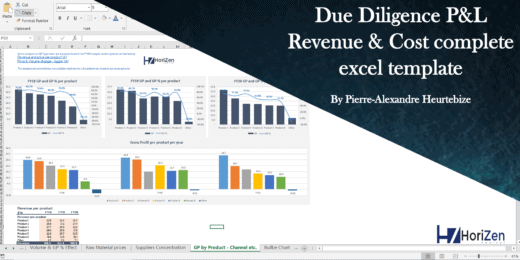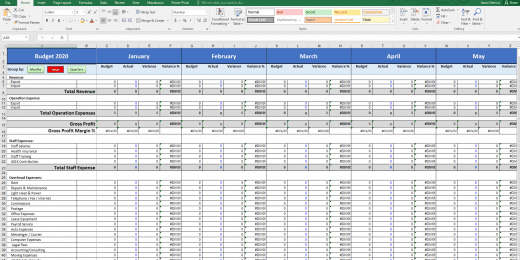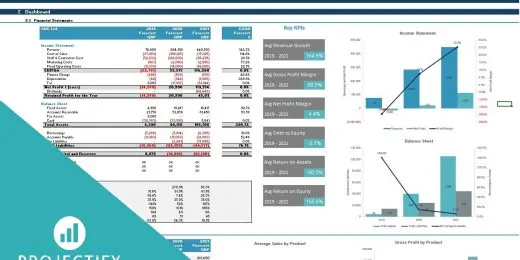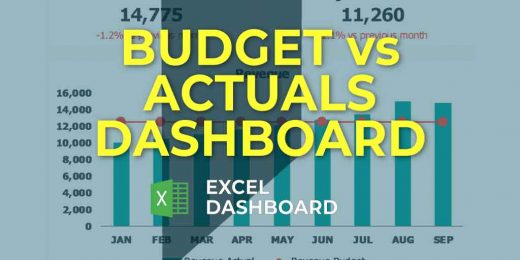Mastering the Art of Construction Financial Management: A Closer Look

Mastering construction financial management is key to ensuring project profitability. A detailed understanding of budgets, forecasts, and cost controls is essential.
Effective construction financial management stands as the backbone of successful building projects. Contractors and construction managers must keep a diligent eye on the financial aspects, balancing costs with project progress. Mastery in this field ensures that resources are allocated efficiently, risks are managed, and financial goals are met.
By focusing on skillful budget management and regular financial assessments, businesses in the construction industry can achieve better cost control and improve their bottom line. Ensuring clear communication about financial matters amongst all stakeholders, coupled with the use of advanced accounting tools and software, can significantly enhance the precision and efficiency of financial operations. As we delve deeper into this topic, we will explore the strategies and best practices that lead to superior construction financial management.
Introduction To Construction Financial Management
Imagine building a towering skyscraper. Now, think about the money side of making it stand tall. It’s like a big puzzle, with each piece being a penny or a dollar. Construction financial management is the smart way to put this puzzle together. It makes sure money is used in the best way to build safe, strong buildings on time.
Knowing how to handle money in construction is key. It’s not just about counting cash. It’s about planning budgets, saving costs, and making sure money is there when needed. Good money skills help build better and avoid wasting resources. This is what makes a construction project succeed.
- Budget planning
- Cost control
- Timely funding
Construction faces unique money challenges. Projects are big and complex. Prices change often. Delays can happen. This can lead to spending more than planned. To master construction money management, it’s important to identify and tackle these hurdles head-on.
| Challenge | Impact |
|---|---|
| Price fluctuations | Lead to budget overruns |
| Project delays | Increase costs |
Key Financial Principles In Construction
Managing finances in construction is like navigating a complex maze. Every decision impacts the project’s health. Mastering key financial principles is not just important—it’s a necessity for success.
Cash Flow Management
Cash Flow Management
Cash is king in the construction world. Without smooth cash flow, projects stall and businesses suffer. Effective cash flow management ensures that money coming in matches or exceeds money going out. Think of it as the project’s heartbeat.
Tools like budget forecasts and cash flow statements keep you ahead. They inform you about future expenses and incomes. Actions include billing promptly, managing receivables, and timing your payables wisely.
- Invoice quickly to speed up cash inflow.
- Track payments to avoid surprises.
- Maintain a reserve for unexpected costs.
Understanding Costs and Profit Margins
Understanding Costs And Profit Margins
Knowing every penny’s path boosts your control over profits. Costs come in two flavors: direct and indirect costs. Direct costs include labor and materials, while indirect costs cover overhead.
Profit margins tell the success story of your construction business. They reflect the efficiency of your cost management. Higher margins mean more room for growth and investment. Key to this is pricing your bids correctly and controlling project expenses.
| Cost Type | Examples | Control Strategy |
|---|---|---|
| Direct Costs | Labor, Materials, Equipment | Negotiate bulk prices, streamline labor |
| Indirect Costs | Office Rent, Utilities, Salaries | Monitor and reduce utility usage, outsource tasks |
Break down each project budget. Look at expected profit versus actual profit. Adjust future bids based on this data. Remember, accurate cost tracking leads to better pricing and healthier margins.
Budgeting For Construction Projects
Mastering financial skills is key for successful construction projects. A solid budget becomes the blueprint for cost control and financial health. Effective budgeting frames the financial scope of a project. It guides spending and resource allocation from start to finish.
Creating A Realistic Budget
Starting with a realistic budget sets a project on the path to success. To keep a construction project financially grounded, consider these steps:
- Analyze past projects for insight.
- Factor in direct costs like labor and materials.
- Do not forget indirect costs, such as permits and insurance.
- Estimate new project costs with precision.
A well-researched, detailed budget prevents overspending and surprises. Use historical data and current market analysis to inform your figures. Employ software tools to enhance accuracy in your calculations.
Monitoring And Adjusting Budgets
Once the budget is set, it’s not set in stone. Regular monitoring is crucial. Keep a close eye on spending with these tips:
| Task | Monitoring Action |
|---|---|
| Review Costs | Check actual vs. planned weekly. |
| Catch Variance | Identify early to manage changes. |
| Adjust Forecasts | Revise budgets based on data. |
Stay flexible and ready to adjust. Market conditions change and can affect material costs. Swift adjustments ensure the budget reflects current realities. Use real-time data to make informed decisions and keep the project on track financially.
Effective Cost Control Strategies
Mastering construction financial management demands skill in controlling costs. Rectifying mistakes after they occur is costly. Preventing them is a sign of expertise. In this segment, let’s dissect effective cost control strategies crucial for keeping construction projects in the green.
Mitigating Overruns
Cost overruns can derail even the most well-planned projects. Steps to keep finances in check include:
- Thoroughly reviewing project plans
- Setting strict budget limits
- Tracking expenses relentlessly
- Adjusting forecasts timely
Hold regular financial reviews with your team. Spot budget deviations early. Use technology advancements like cost management software to streamline these tasks.
Cost-effective Material Management
Materials can be a major expense. Here’s a table illustrating strategies for cost-effective material management:
| Strategy | Description | Impact |
|---|---|---|
| Bulk Purchasing | Order materials in volume | Reduces unit cost |
| Just-in-Time Ordering | Buy materials as needed | Minimizes waste |
| Supplier Negotiations | Discuss terms with suppliers | Lowers purchase price |
| Inventory Management | Track and control stock levels | Prevents excess inventory |
Investigate local suppliers for shorter lead times. Use sustainable materials when possible for long-term savings. Implementing rigid inventory protocols will ensure that no material goes to waste.
Streamlining Payment Processes
When managing a construction project, smooth financial operations are crucial. Streamlining payment processes not only ensures a solid cash flow. It also keeps relationships with suppliers and subcontractors healthy. Below, we delve into the essentials for guaranteeing that money moves efficiently and reliably through your construction projects.
Ensuring Timely Payments
Swift and regular payments maintain momentum on the construction site. Consider these steps for prompt payments:
- Automate invoicing and billing systems to reduce manual errors.
- Set clear payment terms upfront with clients and suppliers.
- Use payment applications that send reminders to both payers and payees.
Integrating digital solutions like electronic fund transfers can dramatically cut down payment times. These tools help avoid disputes and late fees, keeping your project on track financially.
Managing Subcontractor Finances
Subcontractors are vital for a myriad of specialized tasks. A firm grasp on their financial management is essential:
- Verify all subcontractors’ credentials before hiring to ensure professionalism and reliability.
- Clearly define payment schedules and conditions in your contracts.
- Conduct regular financial audits to detect any discrepancies early on.
A reliable system for tracking expenses and payments to subcontractors helps avoid costly mix-ups. It also reassures subcontractors, which in turn builds long-term partnerships.
Integrating Technology In Financial Operations
Construction businesses today strive for efficiency. One way to achieve this is by integrating technology into financial operations. Innovative tools and software transform how companies manage their money, enabling more accurate forecasting, streamlined processes, and informed decision-making.
Software Solutions
Powerful software solutions bring precision to construction financial management. They do this in several ways:
- Automated Invoicing: Reducing human error
- Real-time Budgeting: Tracking expenses as they occur
- Purchase Orders: Managing orders under one system
- Payroll Management: Simplifying worker payments
Top-tier programs also offer customizable dashboards and integration with other tools. Thus, managers see a unified view of financial health.
Data Analytics In Decision-making
Decision-making in construction financial management is critical. Data analytics tools process large volumes of information to uncover trends and patterns. Look at the kind of insights they provide:
| Trend Analysis | Expense Tracking | Cash Flow Forecasting |
|---|---|---|
| View market changes | Monitor project spending | Anticipate future costs |
These tools also offer predictive models. They help firms prepare for financial demands before they surface. Teams make choices with confidence and clarity.
Risk Management And Mitigation
Risk management and mitigation are crucial in construction financial management. This section explores key strategies to shield your project from financial turbulence.
Identifying Financial Risks
Early identification of potential financial risks is vital for any project’s success. Construction businesses must evaluate risks at every project stage.
- Market fluctuations can affect material costs.
- Labor shortages might lead to increased wages.
- Unexpected site conditions can cause budget overruns.
Regular financial audits and forecasting can help managers remain prepared. A table of risks and mitigation strategies enables better planning:
| Risk | Mitigation Strategy |
|---|---|
| Cost escalation | Fixed-price contracts |
| Delay penalties | Scheduling buffers |
| Legal disputes | Thorough contract reviews |
Insurance And Liability Considerations
Insurance is a safety net for construction finances. Every project must have adequate coverage to protect against unforeseen events.
- General Liability Insurance – Covers property damage and injuries.
- Worker’s Compensation – Secures against employee injury claims.
- Professional Liability – Safeguards against errors and omissions.
Requirements vary by location and project type. Work with insurance professionals to tailor your coverage to your specific needs. Document all insurance policies carefully, and ensure all parties understand their responsibilities.
Improving Profitability
Improving Profitability in construction financial management means making more while spending less. We will explore how companies can boost their earnings. Let’s dive into strategies and techniques that can lead to a healthier bottom line.
Revenue Optimization Strategies
To maximize profits, firms must increase revenue smartly.
- Market Analysis: Know your audience and target effectively
- Service Diversification: Offer more to make more
- Pricing Models: Set competitive yet profitable prices
Firms should also tap into technology for efficiency and employ dynamic billing to match client needs.
Cost Reduction Techniques
Spending less doesn’t mean cutting corners.
- Supply Chain Management: Buy smarter and save
- Automation: Automate tasks to reduce labor costs
- Lean Planning: Waste less to save more
- Regular Audits: Identify leaks and plug them promptly
Implementing regular training can improve staff skills. Equipment maintenance helps avoid costly repairs. Negotiating better terms with suppliers can lead to savings.
Navigating Financial Regulations And Compliance
Mastering construction financial management involves more than just keeping a keen eye on the balance sheet. It delves deep into the labyrinth of financial regulations and compliance within the building sector. Grasping these laws ensures a firm’s financial integrity and minimizes risks related to non-compliance. Let’s explore how staying current with legislation and understanding its impact can fortify a construction company’s finances.
Staying Up-to-date With Laws
Construction professionals must prioritize legal knowledge. Ignorance is not bliss in the realm of financial laws. Keep track of the ever-changing regulations with the following tactics:
- Subscribe to industry newsletters and journals
- Attend webinars and continuing education courses
- Join professional construction associations
Regular updates through these channels enable companies to adapt quickly to new requirements. This adaptability is crucial for financial strategizing and maintaining a company’s legal standing.
Impact Of Regulations On Finances
The influence of financial regulations touches every aspect of construction accounting and finance management:
- Project Budgeting: Intricate regulations can influence project cost estimation.
- Cash Flow Management: Complying with tax laws ensures smooth operational cash flow.
- Risk Management: Adhering to regulations reduces the risks of penalties and fines.
An effective financial strategy aligns with compliance requirements to optimize fiscal outcomes. Ensuring lawful operations secures a company’s reputation and encourages investor confidence.
Training And Professional Development
Mastering the art of construction financial management requires a solid foundation in training and professional development. Ensuring your team is well-versed in the latest strategies and techniques is crucial. It means investing in their growth. Let’s explore how to build a skilled team and keep them sharp in financial management.
Building A Knowledgeable Team
The right team can make all the difference. A knowledgeable team is the bedrock of sound financial management in construction. Here’s how you can assemble and maintain one:
- Recruit with precision: Look for candidates with proven financial acumen. Experience in construction adds value.
- Assess skills regularly: Keep tabs on your team’s abilities. Provide feedback often.
- Promote collaboration: Teams that talk tend to thrive. Encourage open communication about finances.
- Offer mentorship: Pair seasoned pros with new hires. This fosters knowledge sharing.
Ongoing Education In Financial Management
Ongoing education keeps teams ahead of the curve. Investing in continuous learning is key. Let’s dive into effective strategies:
- Enroll in courses: Seek out workshops, webinars, and certifications relevant to construction finance.
- Stay updated with technology: Financial management software evolves. Train your team on the latest tools.
- Encourage professional designations: Support your team in obtaining credentials like CCP (Certified Cost Professional).
- Learn from peers: Network with industry experts. Exchange knowledge and best practices.
| Training Method | Benefits |
|---|---|
| Courses & Certifications | Updated skills, competitive edge |
| Software Training | Efficiency, accuracy |
| Professional Designations | Industry recognition, trust |
| Networking | Collaborative growth, new insights |
Case Studies In Construction Financial Management
Understanding the nuances of financial management in construction can make or break a project. Through real-world examples, we gain insights into effective strategies and avoid common pitfalls. Let’s dive into case studies that highlight the wins and losses in construction financial management.
Success Stories
Stories of victory often teach the best lessons. They showcase strategies that led to impressive outcomes. Here we explore companies that crafted financial blueprints for success.
| Company | Project | Key Financial Strategy | Outcome |
|---|---|---|---|
| BuildRight Inc. | Lakeside Plaza | Robust cost-control system | 20% under budget |
| GreenConstruct | Eco Office Park | Investment in green technologies | High ROI within 2 years |
| Urban Developers | City Mall Expansion | Real-time financial analytics | Completed ahead of schedule |
Learning From Failures
Negative outcomes carry valuable lessons. We study cases where financial missteps led to significant losses but offer learning opportunities.
- Case A: Budget Blowout – A lack of forecasting accuracy surged costs by 35%.
- Case B: Cash Flow Crash – Poor cash management caused project halts.
- Case C: Cutting Corners – Compromising on materials led to legal troubles.
Each case above serves as a cautionary tale. They stress the importance of ongoing financial scrutiny in construction projects.
Conclusion And Future Of Construction Finance
The intricate dance of managing a construction project’s finances comes to an end. It’s time to reflect. Let’s explore the key takeaways from mastering construction financial management. Future trends in construction finance are also drawing attention. Embrace these insights to stay ahead in the construction industry.
Summarizing Key Takeaways
The goal of financial management in construction is clear-cut. Ensure projects stay within budget. Make them profitable. Here are the essentials to remember:
- Effective Budgeting: It’s pivotal for controlling costs.
- Risk Management: Identify potential financial pitfalls early.
- Regular Reports: Stay informed about the financial health of projects.
- Compliance: Adhere to laws and regulations to avoid penalties.
- Cash Flow Management: Ensure liquidity to cover expenses on time.
Trends To Watch
The world of construction finance is not static. Here are emerging trends to monitor:
- Technology Integration: Digital tools are reshaping how financial data is managed and analyzed.
- Sustainability: Green practices are influencing financial decisions and project funding.
- Modular Construction: Pre-fabricated elements streamline costs and timelines.
- Data Security: Protecting financial information becomes more crucial as cyber threats increase.
- Public-Private Partnerships: Innovative funding through collaboration is on the rise.
Frequently Asked Questions
What Is Construction Financial Management?
Construction financial management refers to overseeing and controlling a construction project’s financial aspects. This encompasses budgeting, cost control, and cash flow management to ensure project profitability and efficiency.
How Can You Improve Construction Cost Control?
Improving construction cost control involves regular monitoring of expenses, utilizing cost-effective materials and technologies, and efficient workforce allocation. Timely financial reporting and analysis also significantly contribute to better cost management.
Why Is Cash Flow Management Crucial In Construction?
Cash flow management is vital in construction to maintain the liquidity needed for daily operations. It ensures that funds are available to cover material, labor, and overhead costs, preventing project delays and financial constraints.
What Are The Best Practices For Construction Budgeting?
Best practices for construction budgeting include detailed cost estimation, contingency planning, and proactive adjustments based on real-time tracking of expenditures. This helps in avoiding overruns and maximizing the use of financial resources.
Conclusion
Navigating construction financial management is no small feat. Yet mastering this skill is essential for project success. Remember, steady cash flow and accurate forecasting are your building blocks. Stay informed, embrace technology, and prioritize efficiency for financial stability. Forge ahead, construct firmly, and prosper.



















































